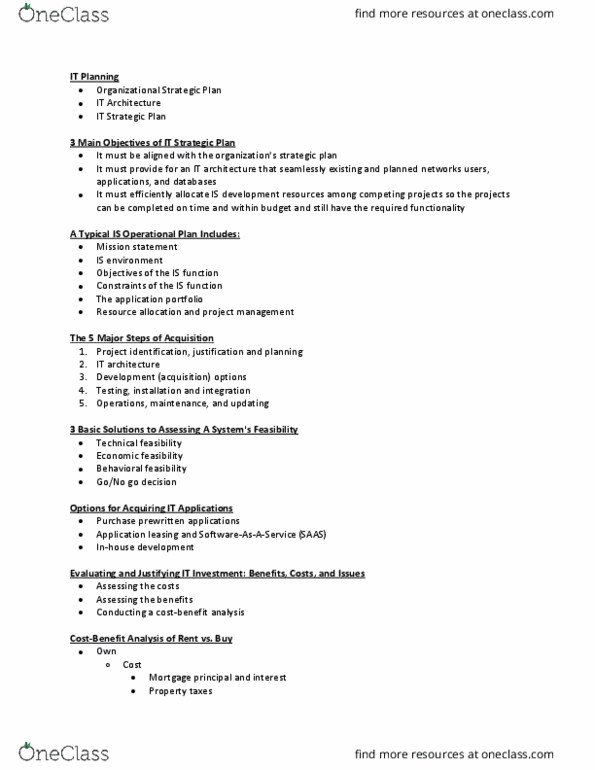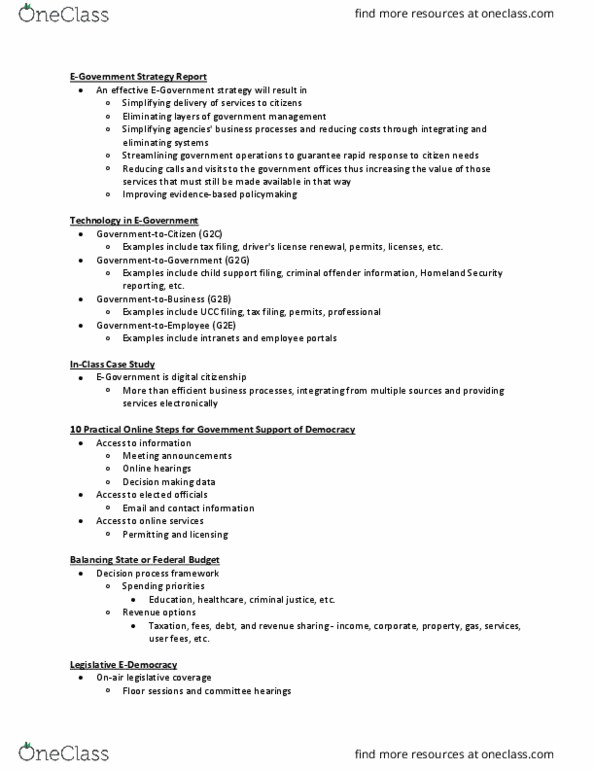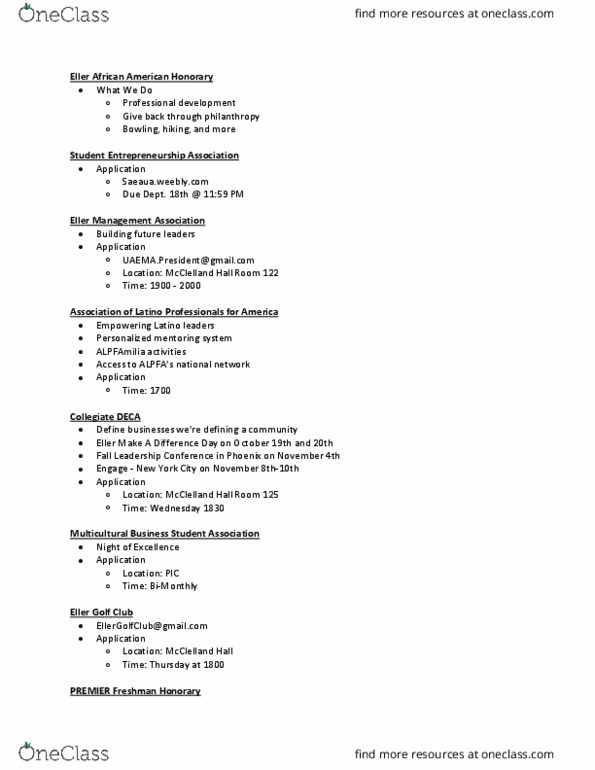MIS 111 Lecture Notes - Lecture 11: Decision-Making, E-Government, Personalization
MIS 111 verified notes
11/47View all
Document Summary
In-class case study: e-government is digital citizenship, more than efficient business processes, integrating from multiple sources and providing services electronically. 10 practical online steps for government support of democracy: access to information, meeting announcements, online hearings, decision making data, access to elected officials, email and contact information, access to online services, permitting and licensing. Balancing state or federal budget: decision process framework, spending priorities, education, healthcare, criminal justice, etc, revenue options, taxation, fees, debt, and revenue sharing - income, corporate, property, gas, services, user fees, etc. Legislative e-democracy: on-air legislative coverage, floor sessions and committee hearings. Local arizona perspective: live proceedings on actv (arizona capital television, personalization and notification, city of st. paul, email notices. Citizens and policy makers are increasingly using the internet to: Learn about politics, the candidates, or campaign issues directly by going online: communicate with others about politics using the internet. Share campaign information using specific tools, such as email, instant messaging, text messages, or twitter.




